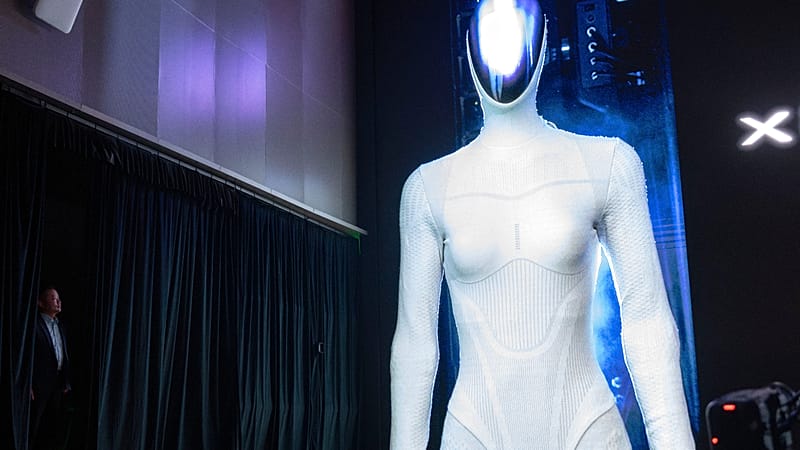Chinese technology and electric vehicle (EV) company XPeng recently unveiled its second-generation humanoid robot, IRON, during its AI Day event in Guangzhou. This new model represents a significant leap forward in the company’s efforts to integrate artificial intelligence with physical robotics. The robot is equipped with bionic muscles, a human-like spine, and three in-house developed Turing AI chips. These advanced features are designed to enhance the robot’s mobility, dexterity, and cognitive capabilities, making it more versatile for various applications.
The IRON robot is expected to enter mass production by 2026, marking a pivotal moment in XPeng’s strategy to expand beyond traditional EV manufacturing into the broader field of AI-driven robotics. This move highlights the company’s ambition to leverage its expertise in AI and autonomous systems to create innovative solutions for both consumer and industrial markets.
In addition to the humanoid robot, XPeng also announced several other AI-driven products that are set to revolutionize transportation and urban mobility. One of these is a robo-taxi program, which aims to provide fully autonomous ride-hailing services. This initiative could significantly reduce the need for human drivers and increase the efficiency of urban transport networks.
Another notable product is a hybrid flying car named A868. This vehicle combines the convenience of ground transportation with the potential of aerial travel, offering a unique solution for future urban mobility challenges. The A868 is designed to operate in both land and air environments, making it a versatile option for commuters and businesses alike.
XPeng’s executives emphasized that recent advancements in AI and computing power have played a crucial role in accelerating the development of these cutting-edge technologies. They highlighted the importance of investing in research and development to stay ahead in an increasingly competitive market. However, analysts have pointed out that XPeng faces fierce competition from established players such as Huawei, NIO, and Tesla. These companies are also heavily investing in AI, autonomous vehicles, and next-generation mobility solutions, creating a dynamic and challenging landscape for all participants.
The growing interest in AI-driven technologies has led to increased collaboration and innovation across industries. Companies like XPeng are not only focusing on improving their own products but also exploring partnerships and alliances to enhance their technological capabilities. This trend is expected to drive further progress in the field of AI and robotics in the coming years.
As the global demand for smart, connected, and autonomous systems continues to rise, companies like XPeng are well-positioned to capitalize on this opportunity. By combining their strengths in AI, EVs, and robotics, they are paving the way for a future where intelligent machines play a central role in everyday life. Whether through humanoid robots, robo-taxis, or flying cars, the possibilities for innovation are vast and exciting.
